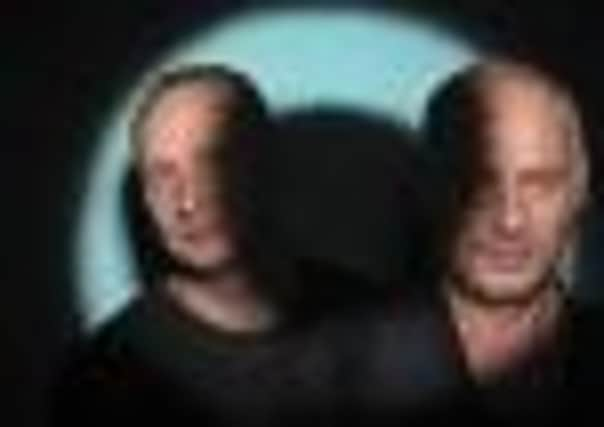Orbital gravitate back to fans old and new


YOU might think that iconic dance duo Orbital would object to being dubbed “British rave’s granddads”.
But if the Hartnoll brothers’ reactions to the recent quip in FACT Magazine are anything to go by, then they seem to be rather content with the label.
Advertisement
Hide AdAdvertisement
Hide Ad“What can you say?” laughs younger sibling Paul. “I’d have preferred something a bit more macho, like ‘British rave’s Godfathers’. But that sounds great.”
It’s certainly true that Orbital have enjoyed much greater longevity and prominence than the vast majority of their dance music contemporaries.
After emerging from the underground rave scene into the popular mainstream at the dawn of the 1990s, they went on to headline Glastonbury and score a string of Top Five albums and Top Ten hits.
However, it all very nearly came to an abrupt end when they decided to break-up back in 2004 – determined never to return.
Advertisement
Hide AdAdvertisement
Hide Ad“When we split, we never had any interest in coming back,” reveals Paul. “We were bored by what we were doing, and it didn’t feel creatively challenging anymore. The best way to break the creative deadlock was simply to stop.”
Big brother Phil paints an even bleaker picture. “We’d lost all direction and heart, and were questioning why we were doing any of it at all,” he adds. “The cloud over us had gotten darker and darker until there was no sunshine left.”
Over the course of a four-year hiatus, however, things began to mellow. And when Orbital agreed to headline The Big Chill in 2009, it soon turned into a full-scale comeback. “There was no master-plan when we reformed,” says Phil. “But there was so much love and warmth from our fans that we ended up doing more shows, and after a while we decided we had to write new material to keep the kettle boiling. One live appearance has turned into two years of shows and writing.”
Now Orbital are releasing their first studio album in eight years, Wonky, which sees them firmly back at the top of their game. Blending classic euphoric electronica with contemporary influences such as dubstep, it has been designed firmly with live performances in mind.
Advertisement
Hide AdAdvertisement
Hide Ad“I know it’s our first album in a long time, but there really was no pressure recording it,” says Paul. “The last two albums we did had been incredibly stressful and pressured, but we’d had a break since then and we felt refreshed.”
The band’s new tour, which calls in at Leeds Academy on April 6, promises the kind of visual splendour and sonic hedonism that made their name back in the infamous days of rave and acid house.
“It was the love of the synthesizer that got me into it,” says Phil. “I just loved the sound, and when I left school at sixteen and got my first job I bought one as soon as I could afford it.”
It was in the mid-80s that the teenage Hartnolls, growing up in Sevenoaks in Kent, first began experimenting with electronic music. They decided on the name Orbital for their fledgling act – a reference to the importance of London’s M25 orbital motorway in the early rave party scene – and before long they were making serious headway into the rapidly-rising dance movement.
Advertisement
Hide AdAdvertisement
Hide AdThe big breakthrough came in 1990 when their rave anthem Chime – recorded on their father’s tape deck – got them on Top Of The Pops.
“It started off just for the fun of it, but when Chime got picked up everything went crazy,” recalls Phil. “I was all set to become a furniture designer at that point, and it had never seemed like a serious ambition to become a professional band. But suddenly we were living the dream.”
“I can’t remember any of it,” laughs Paul. “It’s like they always say: ‘If you can remember it, you weren’t there.’
“It was like starting a new school, really. You got to know everyone in those days. You’d walk up to someone like Adamski and say, ‘Oh, I make music like you’, and end up hanging out. In a sense it was very amateurish, and people were making it up as they went along, but it was so much fun.”
Advertisement
Hide AdAdvertisement
Hide AdNow in their mid-40s and based in Brighton, Paul, who has three young children, admits he rarely gets the chance to go clubbing these days. But their influence on a new generation of DJs and dance artists is not in doubt.